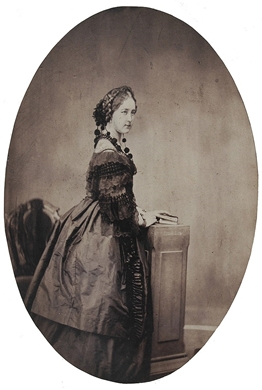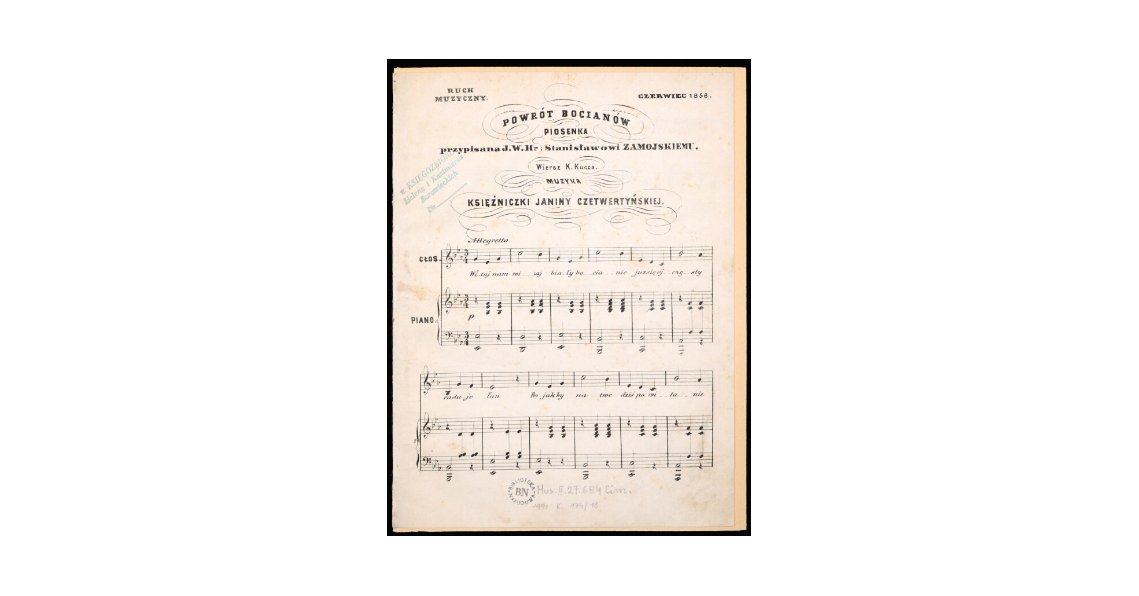Jełowicka-Czetwertyńska Janina

Janina Czetwertyńska -Jełowicka (* 1840 – † 1866 Kyiv) Polish composer and singer. She came from a respectable aristocratic family. She was brought up in a patriotic and cultural environment. Her incredible talent was noticed very early and, at the urging of family friends, she was sent abroad for education. Among her famous teachers were Gioacchino Rossini in Florence and Mauro Giuliani in Paris. There she also made her stage debut as a mezzo-soprano. Thanks to her talent, beauty, personal charm and the ability to improvise in music and poetry, she gained a position at the aristocratic court in France. She has performed, among others at the Hotel Lambert and at the court of Napoleon III. She even gained the nickname of “Polish political ambassador” and hopes were raised that her influence could be used for the Polish cause. In those days, there was even a letter of the duchess circulating describing her conversation with Napoleon III during the masquerade ball, during which the emperor allegedly promised his intercession for the Polish cause. After spending several years abroad, the young artist returned to Poland. Apparently, she allocated part of her property to the expropriation of peasants in the hope that she would gain their participation during the January Uprising. After the outbreak of the uprising, she herself took an active part in the patriotic activity, distributing manifestos of the National Government. Her involvement in Poland’s affairs resulted in her imprisonment in Kiev. After her release, she married Adolf Jełowicki with whom she had a son. Unfortunately, as a result of an unfortunate accident, she loses her descendant, which causes a serious nervous breakdown and, as a result, the artist’s premature death.
Jełowicka left behind numerous pieces of music and literary works, most of which were destroyed during the First World War. In Kiev, however, her Songbook was published, containing 6 songs for voice and piano, incl. to words by Byron, Heine, Schiller (translated into Polish), as well as Adam Mickiewicz and J. Opacka. Her mazurka for voice and piano Look at me to the words of Karol Kucz, was very popular and was reprinted many times. Her comedy “Fortune-teller in the times of Zygmunt August” was also shown. The well-known composer and pianist Józef Wieniawski (Henryk’s brother) dedicated his Song Without Words for piano to Princess Czetwertyńska (Warsaw 1858).
More information about the artist on the wikipedia website.
Sheet music available via the link.
